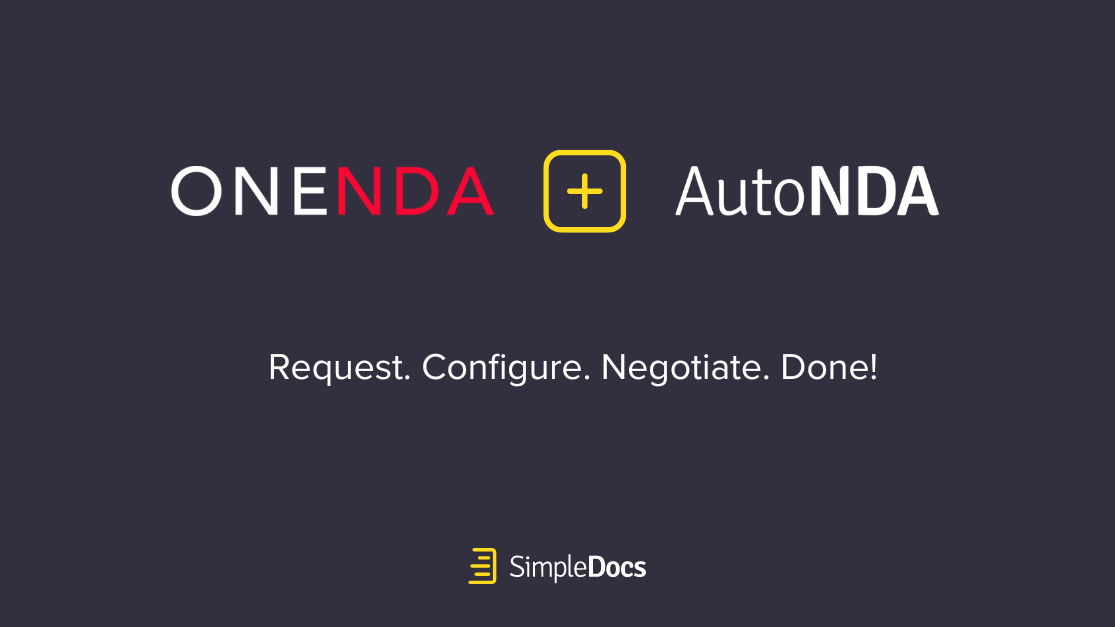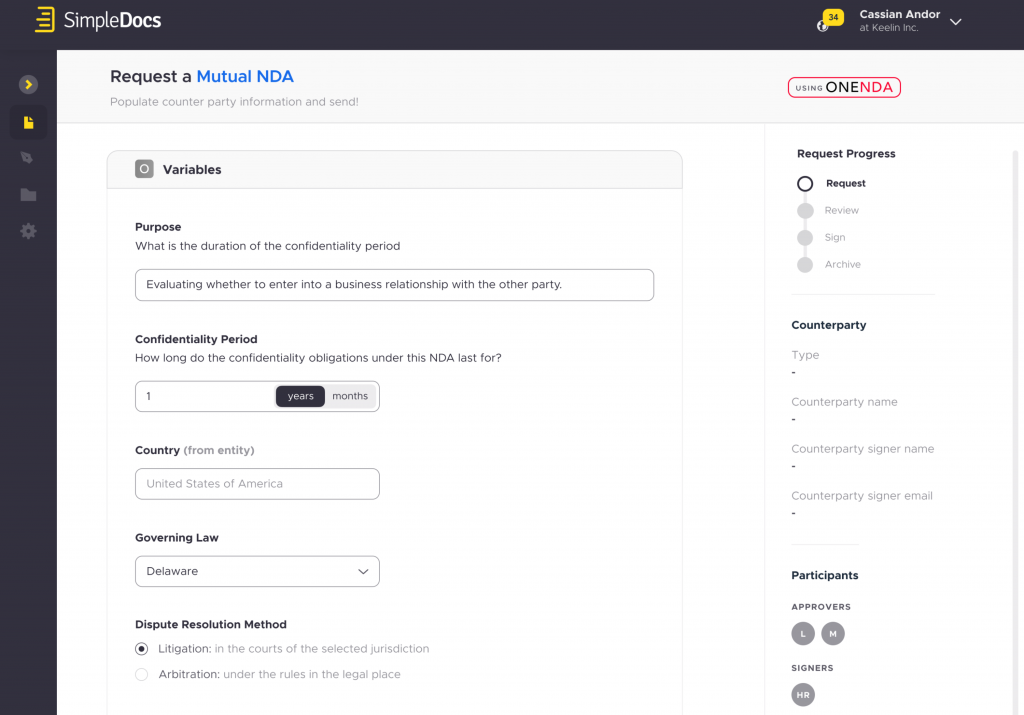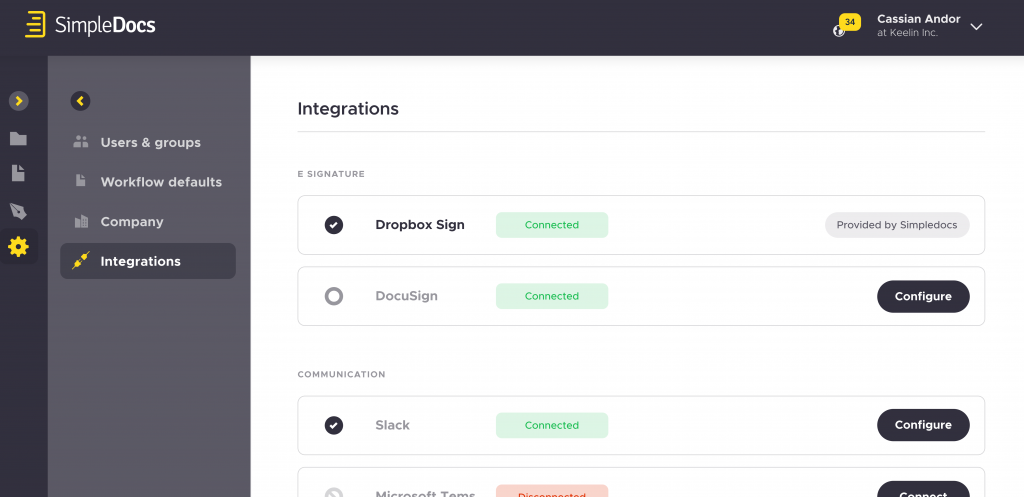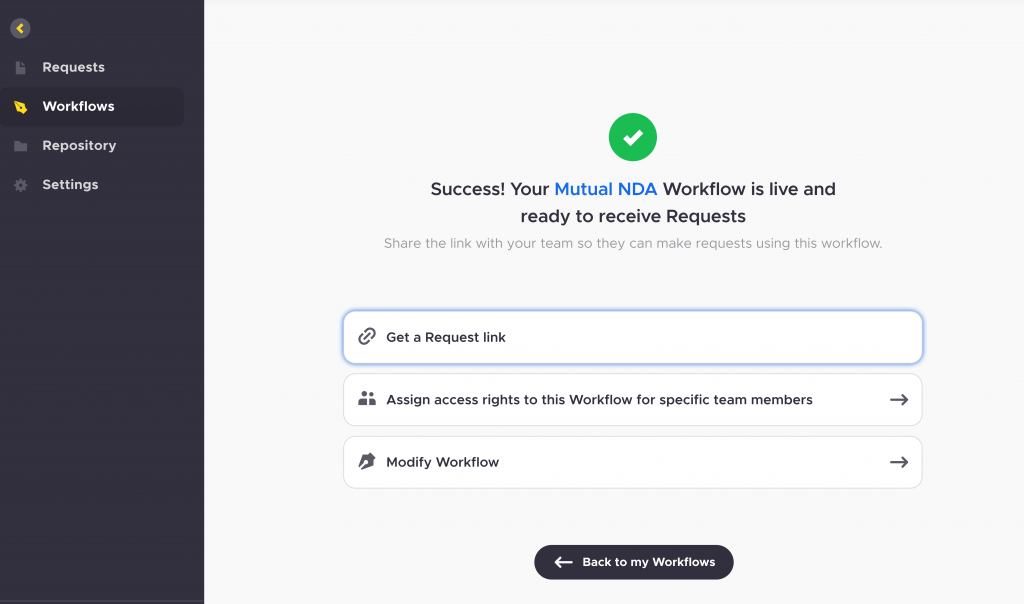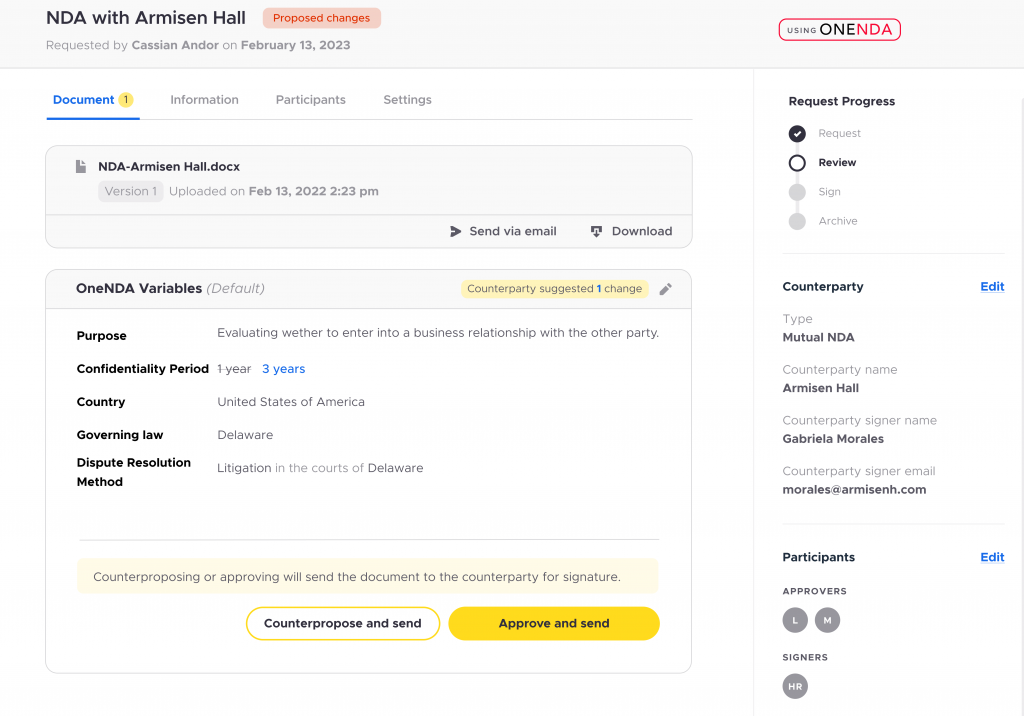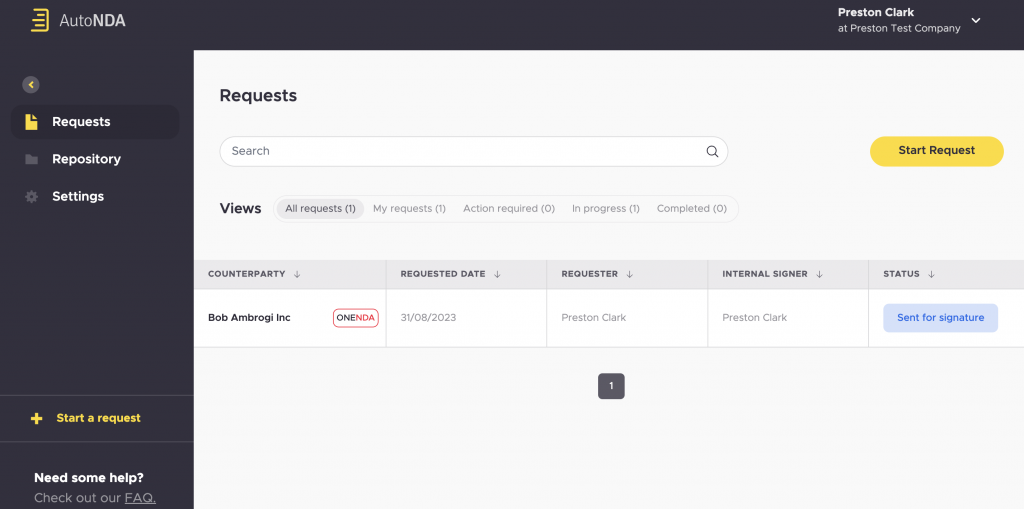Businesses spend significant time, money and effort negotiating that most-common of contracts – the non-disclosure agreement. With the goal of simplifying and standardizing those business dealings, the non-profit organization oneNDA developed an open-source NDA that, since its launch in 2021, has been adopted by more than 1,000 companies, including American Express, Google, Novartis and Panasonic.
Now, oneNDA is hoping to spur even more widespread adoption through the launch of AutoNDA, a free software platform to automate the creation and management of NDAs under the oneNDA standard, designed in partnership with SimpleDocs, a legal tech startup that is developing contract automation solutions.
Available starting Sept. 15, AutoNDA will be available free to anyone who adopts the oneNDA standard. Those interested can now sign up for access to the software through the SimpleDocs website.
“It was always our vision for oneNDA to be more than just an open-source standard, but an end-to-end workflow to streamline the entire NDA process,” said Electra Japonas, the London-based creator of oneNDA and also the CEO and c0founder of The Law Boutique (TLB), a company that provides outsourced contracts and legal operations services to corporate law departments.
“We found a great partner in SimpleDocs to develop and power a software platform around our standard template,” said Japonas, who cofounded oneNDA together with her TLB cofounder Roisin Noonan. “They also share our vision to make oneNDA the de facto global standard, and by offering the AutoNDA platform for free to our adopters, they are helping us pursue that vision.”
Automating the Standard
Last week, Preston Clark, CEO and cofounder of SimpleDocs (as well as of the contract database site Law Insider), gave me a demonstration of AutoNDA, joined by SimpleDocs cofounders Jordan Trevino, chief technology officer, and Ali Waqar, chief operating officer.
“Thousands of companies have decided to adopt oneNDA,” Clark told me. “It is a well-adopted standard and now we are delivering a product for the current adopters and adopters into the future.”
As for creating the application, he said, it was helped by the fact that the standard was already well-structured and designed for automation.
“Electra and team have created a globally recognized standard in oneNDA and we’re absolutely honored to power the software that automates it,” he said.
The first time someone uses AutoNDA, it takes just a few moments for them to complete the initial set up. The first step is for the user to configure the oneNDA variables. Since the whole idea of oneNDA is keep variables to a minimum, there are only five that the user can configure:
- The parties to the NDA.
- The purpose of the NDA.
- The length of the confidentiality agreement.
- The governing law should a dispute arise.
- The method of dispute resolution – court or arbitration – and jurisdiction.
Once set up, those variables (other than counter-party) will be retained for subsequent NDA requests within that organization.
The next step is for the user to connect an e-signature tool. It currently integrates with Docusign and Dropbox Sign, with others to be added.
The user would next decide whether to promote AutoNDA as a self-service option within the organization. AutoNDA allows the user to share a link via email, Slack, or Teams to allow anyone in initiate NDA requests on a self-serve basis, with no concerns about cost, since the application is free.
Once that much is set up, the user and the counter-party are then able to manage the negotiations directly within the AutoNDA platform. In this free version, only the oneNDA variables are subject to negotiation. Any redlining beyond that takes it out of oneNDA — and out of AutoNDA — and into traditional redlining. (SimpleDocs offers a paid Word add on for standard contract redlining.)
When all parties reach agreement, the NDA is routed to each for signature, ending with the user who initiated the process. The final agreement is retained in the AutoNDA Repository, where users can search for and track in-progress, signed and expired NDAs.
The free version of AutoNDA will include:
- Unlimited NDA requests.
- Unlimited business user licenses.
- NDA repository and search access.
- NDA request portal for sales and business teams.
- Docusign and Dropbox Sign integration.
- Custom oneNDA configurations.
- Same-day onboarding and implementation.
“We believe that in-house teams that adopt open-source standards like oneNDA are more likely to adopt software that automates these templates,” Clark said. “Electra and team have created a globally recognized standard in oneNDA, and we are absolutely honored to power the software that automates it.”
Standardizing NDAs
Japonas was inspired to create oneNDA in the midst of the Covid crisis, when demand for her company’s contract services quadrupled. During that time, she found, 63% of the agreements TLB reviewed for clients were NDAs but they accounted for only 7% of its revenue.
“It was clear that the sheer volume of contracts that we were processing and the cost, time and effort involved was disproportionate to the value they were adding or bringing, to anyone,” she said.
Given that most NDAs are more or less the same, she wondered why everyone couldn’t agree to use a standard template. She put the idea out on LinkedIn, and it generated more than 30,000 views and messages of support from lawyers all over the world.
She put together a steering committee of lawyers from major companies and law firms that helped oversee development of an initial NDA, starting with one developed by World Commerce & Contracting, an international contracting standards organization.
By June 2021, they had developed the initial version and then turned to operationalizing the usage of the oneNDA template and driving adoption. The formally launched version one in August 2021. In March 2022, they release a second version.
oneNDA is not alone in seeking to promote a standard NDA. Other companies that have developed standardized, open-source NDA templates include CommonPaper, Bonterms and Standard Draft.
But a key difference between oneNDA and these others, Japonas told me, is that oneNDA is not negotiable beyond the five variables. “We are like the Apple to their Android — you are not allowed to negotiate it. If it’s good enough for them, it’s good enough for you.”
Both Japonas and Preston believe that other business agreements are susceptible to standardization as they have done with oneNDA. Already, the oneNDA organization has developed a oneNDA module specific to M&A matters, and it has also launched oneDPA for standardizing data protection agreements.
“Around 90% of all agreements are made up of boilerplate,” Japonas said. “There is so much we could do here.”
 Robert Ambrogi Blog
Robert Ambrogi Blog